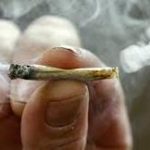 One of the greatest blunders in American constitutional law is arguably the 18th Amendment, prohibiting the manufacture and sale of alcoholic beverages in the United States. It was submitted for ratification exactly 34 years before my birth, and took just a shade under 13 months for ratification, becoming law on January 16, 1919. It was such a significant mistake that it is the only Amendment to be repealed just under 14 years later by the 21st Amendment, on December 5th, 1933. (For the record I think the 2008 decision of District of Columbia v Heller is a worse disaster, but I talked about that at length in a previous post. I say this is arguably a worse blunder, as it is the only Amendment that was repealed by a subsequent Amendment.)
One of the greatest blunders in American constitutional law is arguably the 18th Amendment, prohibiting the manufacture and sale of alcoholic beverages in the United States. It was submitted for ratification exactly 34 years before my birth, and took just a shade under 13 months for ratification, becoming law on January 16, 1919. It was such a significant mistake that it is the only Amendment to be repealed just under 14 years later by the 21st Amendment, on December 5th, 1933. (For the record I think the 2008 decision of District of Columbia v Heller is a worse disaster, but I talked about that at length in a previous post. I say this is arguably a worse blunder, as it is the only Amendment that was repealed by a subsequent Amendment.)
Prohibition, as the 18th Amendment was called, also became the name for the time period during which the 18th Amendment was in force. It is credited with the rise of organized crime in the US, largely through the illegal import, manufacture and sale of alcohol. Most people still wanted to drink, and since it was now illegal to buy it openly, they resorted to illegal sources. The law of supply and demand dictated that the demand would be filled, and The Mob (as organized crime came to be known) was happy to do so. The gangsters who led The Mob were apparently pretty good at organizing, and a massive, but obviously illegal industry grew with them at the helm. Huge amounts of money changed hands from the distribution and sale of the illegal booze, much of it going into the pockets of the gangsters of course, but a significant portion of it went to influence (and corrupt) law enforcement through payoffs, bribes, kickbacks and so forth. So-called “speakeasy’s” abounded where normally law-abiding citizens could indulge in one of their favorite pastimes.
The main reason this is on my mind is that I’m on my way home from Chicago right now, where speakeasies, Prohibition and the Mob led by notorious Al Capone figured so prominently during the Roaring Twenties/Prohibition. I even went to a bar reminiscent of speakeasies of the time called Untitled, which advertises the largest collection of US bourbons in the world. Very cool bar, and I intend to go back! One of the managers is Theodore Feingold, the brother of a friend of mine, Marla Feingold).
Anyhow, that time is romanticized today in movies and TV, but we should remember it was actually a pretty brutal time. Once The Mob got organized, prostitution, gambling, extortion and other activities followed, but the worst brutality came as different groups within The Mob fought for ascendancy and a larger piece of the action. Turf wars led to brutal murders (mostly of other mobsters with the occasional innocent civilian caught in the crossfire) and in places like Chicago people lived in fear of being caught up in these wars. One of my favorite Chicago restaurants is CPOG (Chicago Pizza and Oven Grinder), which is in building on north Clark Street that local lore has it was used as a lookout during the famous St. Valentines’ Day Massacre where six mobsters and one hanger-on were lined up and machine-gunned as part of these afore-mentioned turf wars. Although it took over a decade, it became clear that attempting to force a particular moral code (temperance) on the population of the whole country was a bad idea and the 18th Amendment was repealed by the passing of the 21st, as I said earlier.
So…let’s see. Are there any similarities to a situation today?  Obviously I’m talking about the current war on drugs. State after state (26 at last count) as well as the District of Columbia have either outright legalized recreational use or provided permission for medical use. I am not a fan of pot, coke or any other recreational pharmaceutical, but I have close friends who are. I have felt for a long time that our societal war on drug use is misguided at best. It seems silly to make smoking a joint a crime when there isn’t a shred of solid evidence that it harms anyone beyond the same harm that comes from smoking cigarettes.
Obviously I’m talking about the current war on drugs. State after state (26 at last count) as well as the District of Columbia have either outright legalized recreational use or provided permission for medical use. I am not a fan of pot, coke or any other recreational pharmaceutical, but I have close friends who are. I have felt for a long time that our societal war on drug use is misguided at best. It seems silly to make smoking a joint a crime when there isn’t a shred of solid evidence that it harms anyone beyond the same harm that comes from smoking cigarettes.
It seems to me it should be a personal choice to use it, that it should be regulated and taxed just like alcohol consumption. The cost to society, similar to the cost to society of alcohol consumption, is the subject of another post.
About BigBill
Stats: Married male boomer.
Hobbies: Hiking, woodworking, reading, philosophy, good conversation.

Booze, drugs and personal choices
Prohibition, as the 18th Amendment was called, also became the name for the time period during which the 18th Amendment was in force. It is credited with the rise of organized crime in the US, largely through the illegal import, manufacture and sale of alcohol. Most people still wanted to drink, and since it was now illegal to buy it openly, they resorted to illegal sources. The law of supply and demand dictated that the demand would be filled, and The Mob (as organized crime came to be known) was happy to do so. The gangsters who led The Mob were apparently pretty good at organizing, and a massive, but obviously illegal industry grew with them at the helm. Huge amounts of money changed hands from the distribution and sale of the illegal booze, much of it going into the pockets of the gangsters of course, but a significant portion of it went to influence (and corrupt) law enforcement through payoffs, bribes, kickbacks and so forth. So-called “speakeasy’s” abounded where normally law-abiding citizens could indulge in one of their favorite pastimes.
The main reason this is on my mind is that I’m on my way home from Chicago right now, where speakeasies, Prohibition and the Mob led by notorious Al Capone figured so prominently during the Roaring Twenties/Prohibition. I even went to a bar reminiscent of speakeasies of the time called Untitled, which advertises the largest collection of US bourbons in the world. Very cool bar, and I intend to go back! One of the managers is Theodore Feingold, the brother of a friend of mine, Marla Feingold).
Anyhow, that time is romanticized today in movies and TV, but we should remember it was actually a pretty brutal time. Once The Mob got organized, prostitution, gambling, extortion and other activities followed, but the worst brutality came as different groups within The Mob fought for ascendancy and a larger piece of the action. Turf wars led to brutal murders (mostly of other mobsters with the occasional innocent civilian caught in the crossfire) and in places like Chicago people lived in fear of being caught up in these wars. One of my favorite Chicago restaurants is CPOG (Chicago Pizza and Oven Grinder), which is in building on north Clark Street that local lore has it was used as a lookout during the famous St. Valentines’ Day Massacre where six mobsters and one hanger-on were lined up and machine-gunned as part of these afore-mentioned turf wars. Although it took over a decade, it became clear that attempting to force a particular moral code (temperance) on the population of the whole country was a bad idea and the 18th Amendment was repealed by the passing of the 21st, as I said earlier.
So…let’s see. Are there any similarities to a situation today? Obviously I’m talking about the current war on drugs. State after state (26 at last count) as well as the District of Columbia have either outright legalized recreational use or provided permission for medical use. I am not a fan of pot, coke or any other recreational pharmaceutical, but I have close friends who are. I have felt for a long time that our societal war on drug use is misguided at best. It seems silly to make smoking a joint a crime when there isn’t a shred of solid evidence that it harms anyone beyond the same harm that comes from smoking cigarettes.
Obviously I’m talking about the current war on drugs. State after state (26 at last count) as well as the District of Columbia have either outright legalized recreational use or provided permission for medical use. I am not a fan of pot, coke or any other recreational pharmaceutical, but I have close friends who are. I have felt for a long time that our societal war on drug use is misguided at best. It seems silly to make smoking a joint a crime when there isn’t a shred of solid evidence that it harms anyone beyond the same harm that comes from smoking cigarettes.
It seems to me it should be a personal choice to use it, that it should be regulated and taxed just like alcohol consumption. The cost to society, similar to the cost to society of alcohol consumption, is the subject of another post.
About BigBill
Stats: Married male boomer. Hobbies: Hiking, woodworking, reading, philosophy, good conversation.